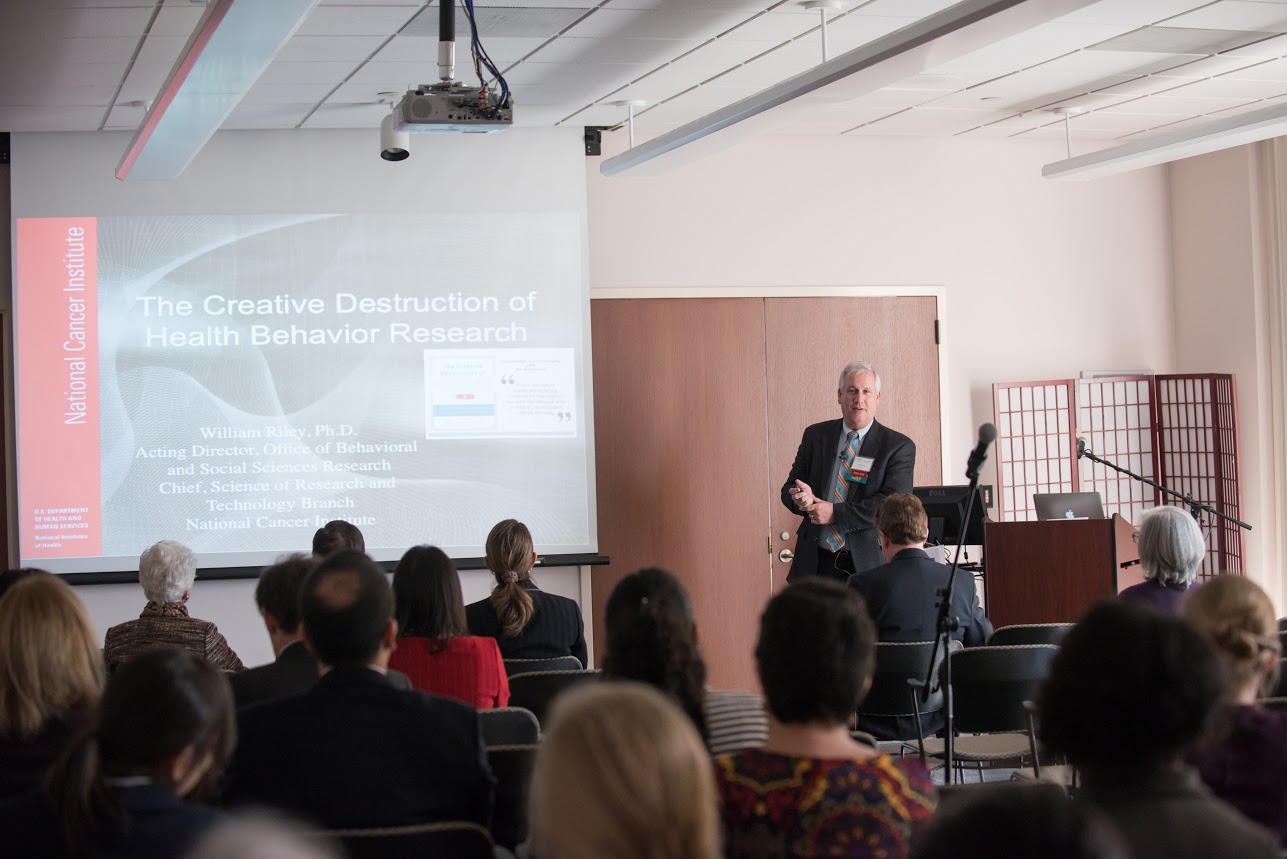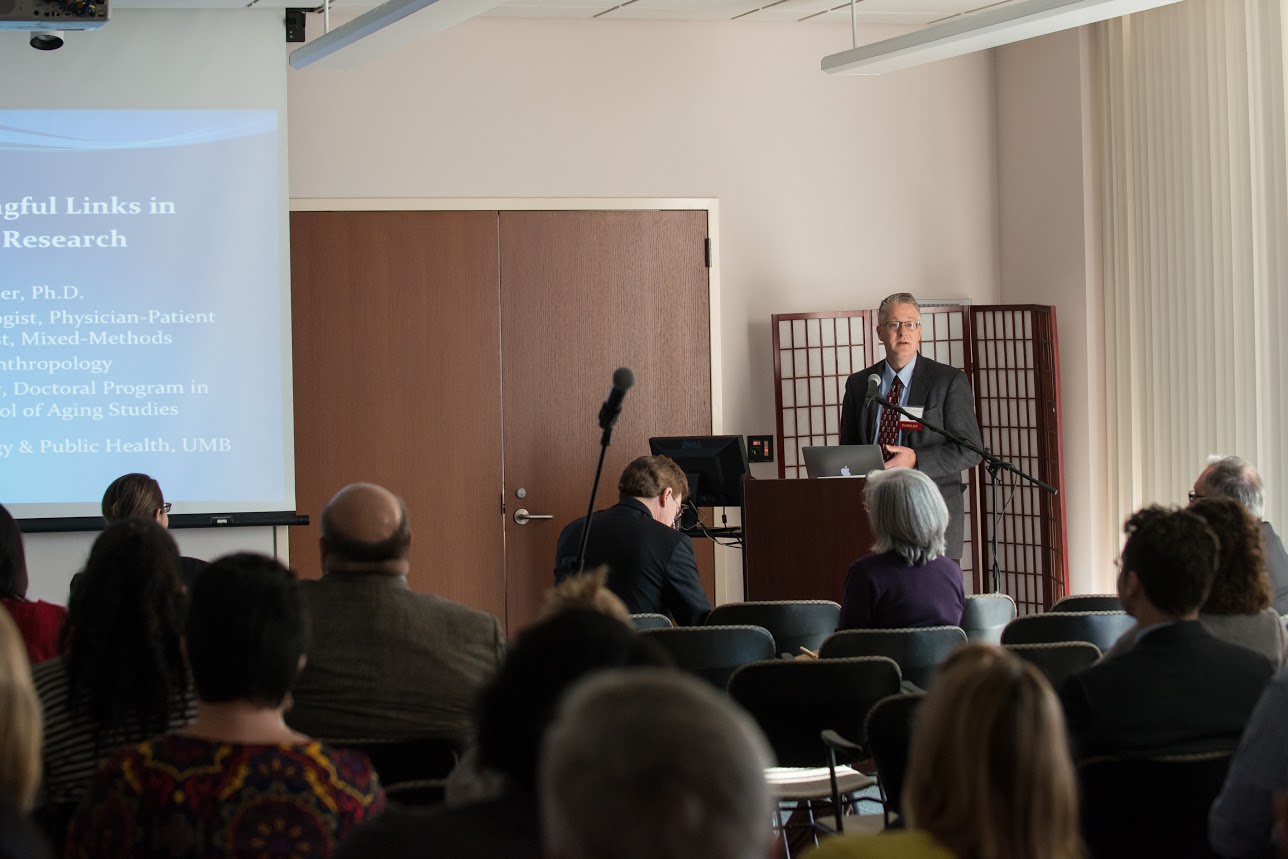
On Friday, November 21, UMBC hosted its inaugural Research Forum, the first event in a new, semi-annual series to bring together researchers and scientists from across UMBC and partner institutions to establish collaborations around common research themes. The first event was titled, “The Nexus of Social Sciences and Human Health Research,” and it was sponsored by the Office of the Provost and the Office of the Vice President for Research. The forum aimed to advance intra-campus and inter-campus collaborations in the social and health sciences and to initiate conversations about the role of social sciences in basic and translational research.

Dr. William Riley, the Acting Director of the NIH Office of Behavioral and Social Sciences Research (OBSSR), presented the event’s keynote address. Dr. Riley discussed how researchers are now faced with a data-rich environment to enhance their work when conducting investigations, including advances with item response theory, computer adaptive testing, and other sensor technologies which generate reports in real-time.
Researchers from UMBC and UMB participated in a panel discussion that focused on developing meaningful links across disciplines. John Schumacher, an associate professor of sociology, discussed strategies for seeking research partners and establishing leaders and milestones to advance interdisciplinary research projects. Fadia Shaya, a professor of pharmaceutical health services research at UMB, discussed how developing peer support and establishing social networks can lead to improved outcomes. UMBC professors Shari Waldstein (psychology) and Brian Cullum (chemistry and biochemistry), shared their insights on strategies for collaboration across disciplines, including building on pilot data and prior research to advance projects. Lee Boot, associate director of UMBC’s Imaging Research Center, discussed how discipline silos no longer exist and how collaboration is needed to solve problems.
Future Research Forums will focus on high-performance computation and environmental sciences and remote sensing. For more information, click here.
